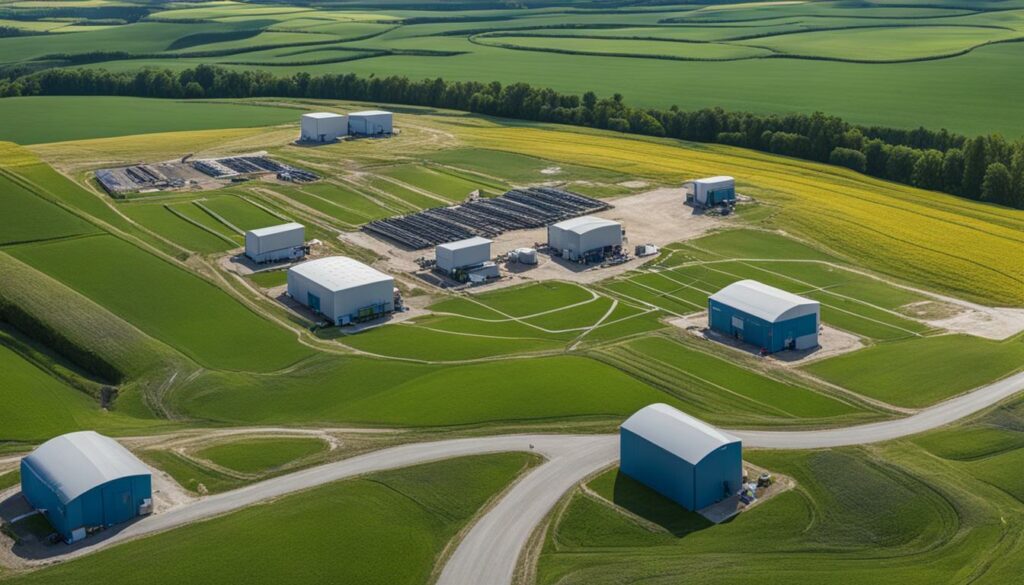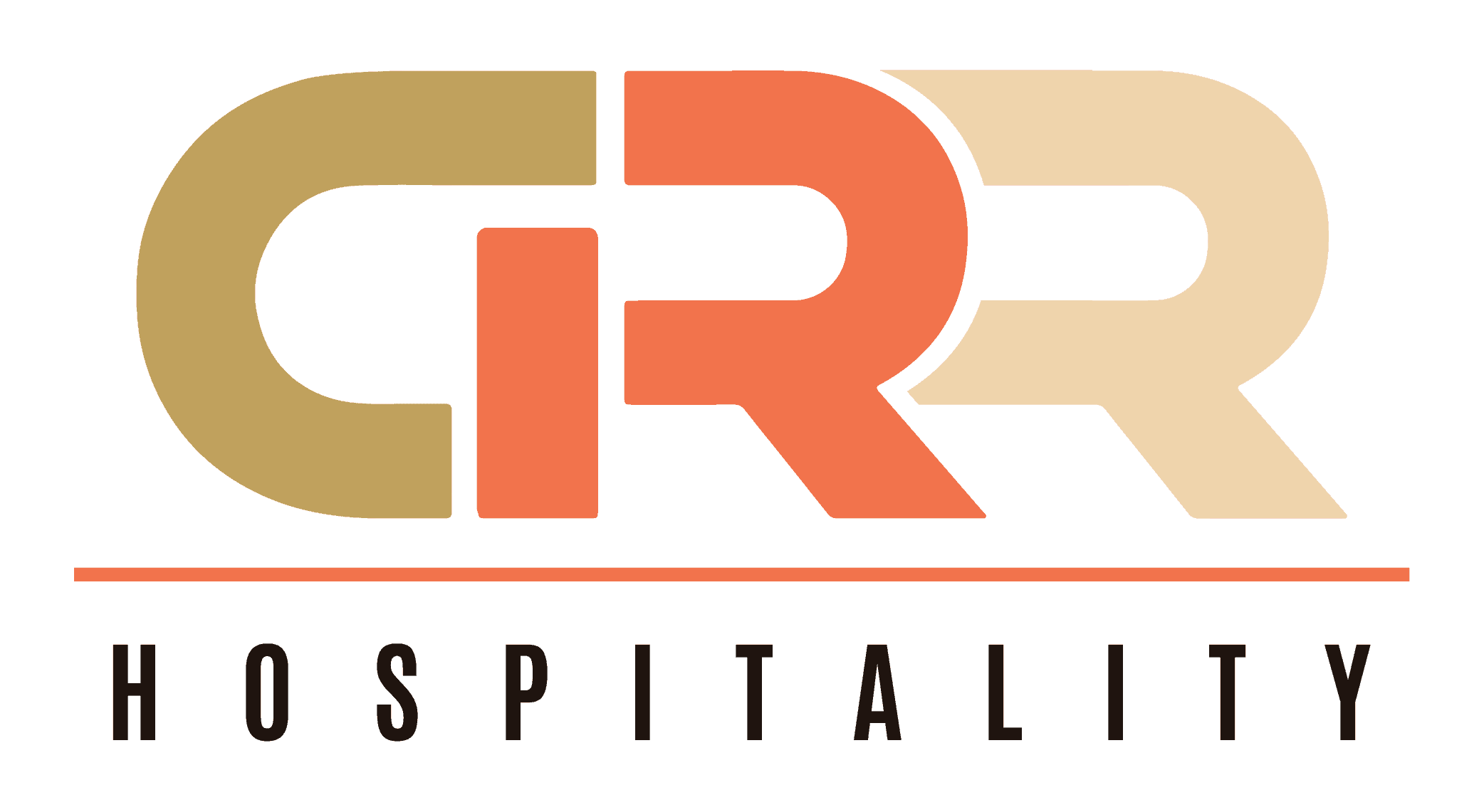In the highly competitive outdoor hospitality industry, it’s essential to establish efficient procurement processes that can drive growth and improve customer satisfaction. One way to achieve this is through strategic sourcing, a proactive approach to procurement that focuses on building strong supplier relationships and optimizing supply chain efficiency.
By adopting strategic sourcing strategies, outdoor hospitality businesses can gain a competitive edge by reducing costs, improving supplier performance, and minimizing risk. This approach involves a comprehensive evaluation of procurement processes, an analysis of suppliers, and the establishment of long-lasting partnerships.
In this article, we will explore the benefits and strategies of strategic sourcing for the outdoor hospitality industry. We will delve into the key steps and best practices for implementing strategic sourcing initiatives, including building robust supplier networks, optimizing procurement processes, and measuring success.
Key Takeaways:
- Strategic sourcing is a proactive approach to procurement that can drive growth in the outdoor hospitality industry.
- This approach involves evaluating procurement processes, analyzing suppliers, and building strong partnerships.
- Adopting strategic sourcing strategies can lead to cost savings, improved supplier performance, and reduced risk.
- Key steps for implementing strategic sourcing include building robust supplier networks, optimizing procurement processes, and measuring success.
- The outdoor hospitality industry can benefit greatly from adopting strategic sourcing strategies.
Understanding Strategic Sourcing for Outdoor Hospitality
To optimize procurement processes and achieve cost savings, outdoor hospitality businesses are turning to strategic sourcing. But what does this approach entail, and how can it benefit your business?
Strategic sourcing refers to a proactive, long-term approach to procurement that goes beyond simply buying goods and services. Instead, it involves identifying the right suppliers, negotiating contracts, and establishing strong relationships that can lead to ongoing cost savings and improved quality.
For outdoor hospitality businesses, strategic sourcing can be especially beneficial, given the sector’s unique needs and challenges. By leveraging strategic sourcing strategies, businesses can identify suppliers that specialize in outdoor hospitality products and services, negotiate better rates, and establish partnerships that can lead to ongoing cost savings.
Effective Strategies for Strategic Sourcing in Outdoor Hospitality
There are several effective strategies that outdoor hospitality businesses can adopt to enhance their procurement processes through strategic sourcing:
- Collaborative relationships with suppliers: Developing long-term relationships with key suppliers can foster confidence, which can lead to further cost savings and better outcomes.
- Supplier Diversity: Diversity in supplier networks can help to reduce risk, avoiding the consequences of sourcing from a single supplier.
- Supplier Performance Measurement: By measuring supplier performance, it is possible to ensure that suppliers uphold their service promises, continuously improve their services, and deliver value optimally.
These strategies can help to drive continuous improvement and optimize procurement processes while enhancing service effectiveness, efficiency, and quality. Understanding strategic sourcing and implementing effective strategies can help outdoor hospitality businesses achieve their objectives while meeting today’s evolving customer requirements.
The Role of Supply Chain Management in Outdoor Hospitality Sourcing

Supply chain management plays a critical role in the success of strategic sourcing within the outdoor hospitality industry. Effective management of the flow of goods and services between suppliers, manufacturers, distributors, and customers is essential to achieving optimal procurement outcomes.
An efficient supply chain management system ensures that outdoor hospitality businesses receive products and services timely, efficiently, and at a reasonable cost. This process involves the integration of sourcing, procurement, and logistics activities, with tight coordination and communication within the supply chain.
Outdoor hospitality companies that prioritize supply chain management can drive operational efficiency, reduce costs, and increase customer satisfaction. For instance, by working with suppliers that are geographically closer, businesses can reduce delivery times and transportation costs. Additionally, a well-managed supply chain ensures that products are delivered with minimal damage, pilferage, or loss, which boosts customer trust and satisfaction.
Advantages of Effective Supply Chain Management in Outdoor Hospitality Sourcing
The following are some of the key advantages of effective supply chain management in outdoor hospitality sourcing:
- Reduced procurement costs through better supplier selection
- Faster and more efficient delivery of products and services
- Improved customer satisfaction and loyalty
- Better risk management and mitigation strategies
- Higher supply chain visibility and transparency
- Reduced environmental impact through sustainable sourcing practices
The Importance of Collaboration and Communication in Supply Chain Management
Effective supply chain management is not only about choosing the right suppliers or logistics partners, but also requires a high level of collaboration and communication throughout the supply chain network.
“The key to successful supply chain management lies in building strong relationships with suppliers, understanding their capabilities and limitations, and communicating expectations clearly.”
By maintaining open lines of communication with suppliers and other supply chain partners, outdoor hospitality businesses can better manage risks, streamline processes, and improve overall supply chain performance. Collaborative efforts can also lead to co-creation of innovative solutions, that can help businesses stand out in a highly competitive market.
Benefits of Strategic Sourcing in Outdoor Hospitality
Implementing a strategic sourcing approach can yield several benefits for businesses in the outdoor hospitality industry. By optimizing procurement processes and establishing a robust supplier network, outdoor hospitality businesses can enjoy the following advantages:
- Cost savings: Strategic sourcing enables businesses to negotiate better deals with suppliers, resulting in lower costs for goods and services.
- Improved supplier relationships: By working closely with suppliers and building long-lasting partnerships, businesses can improve the quality of goods and services they receive, improving customer satisfaction.
- Increased efficiency: By streamlining procurement processes through strategic sourcing, businesses can achieve greater operational efficiency and reduce the time spent on administrative tasks.
- Risk mitigation: Strategic sourcing practices can help businesses identify potential risks in the supply chain, allowing them to take preemptive measures to avoid disruption.
Overall, implementing strategic sourcing solutions for outdoor hospitality can lead to improved operational performance and a stronger bottom line.
Implementing Strategic Sourcing in Outdoor Hospitality

Successfully implementing strategic sourcing in outdoor hospitality requires a structured approach. By following the right steps and incorporating best practices, businesses can optimize their procurement processes and achieve cost savings. Here are some key considerations:
Establish Clear Sourcing Goals
Before embarking on a strategic sourcing initiative, it’s important to define clear goals and expectations. Businesses must identify what they hope to achieve and what success looks like. This will help guide decision-making and ensure that sourcing activities align with broader organizational objectives.
Invest in Technology and Data Analytics
Implementing strategic sourcing in outdoor hospitality requires an investment in technology and data analytics. Procurement teams must have access to tools that can provide real-time data on supplier performance, delivery times, and pricing. By leveraging data, businesses can make informed decisions and identify areas for improvement.
Cultivate Strong Supplier Relationships
Relationship-building is an essential part of successful strategic sourcing. Procurement teams must work closely with suppliers to establish open lines of communication and build trust. By cultivating strong relationships, businesses can negotiate better deals, secure more favorable terms, and unlock cost savings.
Continuously Monitor and Evaluate
Strategic sourcing is an ongoing process, not a one-time event. Businesses must continuously monitor and evaluate their procurement processes to ensure that they are achieving their goals. This requires regular review and analysis of metrics such as cost savings, supplier performance, and delivery times.
By incorporating these best practices, businesses can successfully implement strategic sourcing in the outdoor hospitality sector and achieve significant cost savings.
Building a Robust Supplier Network for Outdoor Hospitality
Creating a robust supplier network is essential in establishing an effective strategic sourcing strategy for outdoor hospitality. Suppliers play a crucial role in delivering the goods and services necessary to provide guests with a memorable experience.
Identifying appropriate suppliers and building long-lasting partnerships with them can be achieved through the following strategies:
- Conducting industry research: Before sourcing suppliers, conduct extensive research on industry trends, including new products and services. Stay current with industry news, attend trade shows, and engage with peers to stay informed about supplier innovations.
- Defining supplier requirements: Develop clear, concise supplier requirements based on business needs and goals, including quality, pricing, delivery, and customer service. Share these requirements with potential suppliers and assess their ability to meet these requirements.
- Establishing supplier relationships: Effective communication and collaboration are key to establishing strong supplier relationships. Work closely with suppliers to ensure they understand business needs and expectations. Support suppliers by offering prompt payment and providing feedback to help improve their service or product quality.
By implementing these strategies and building a robust supplier network, outdoor hospitality businesses can ensure a reliable supply chain, improve product and service quality, and enhance overall guest experiences. A strong supplier network can also provide a competitive advantage and cost savings by allowing businesses to negotiate better pricing and terms with suppliers.
Overcoming Challenges in Outdoor Hospitality Sourcing

Implementing strategic sourcing in outdoor hospitality can be met with several challenges that, if not resolved promptly, can lead to negative impacts on your business. Some of these challenges include:
- The lack of reliable supplier data and information
- Inefficient procurement processes
- Difficulty in identifying the best supplier fit for your business
- Resistance to change
However, with the right strategies and solutions in place, these challenges can be overcome to enhance your procurement and supplier management practices.
Effective Solutions and Strategies
One of the most useful strategies to overcome supplier data challenges in strategic sourcing is to conduct thorough supplier research and communication before signing contracts. This will help you understand their capabilities, performance history, and financial stability. Additionally, ensuring your procurement processes are efficient, with well-defined processes and workflows, can help prevent bottlenecks and delays.
Another effective solution is to engage in a supplier diversity program, aimed at partnering with businesses from diverse backgrounds, sizes, and locations. This can help mitigate supply chain risks and improve resilience in times of disruption, contributing to superior supplier relationships and a competitive advantage. Resistance to change can also be overcome by presenting a compelling business case and gradually implementing changes that positively impact operations.
By proactively monitoring supplier performance metrics, establishing clear quality expectations, and fostering clear communication can improve supplier fit, and eliminate any misconceptions that can arise from poor communication or misunderstandings.
Image alt tag: Strategic sourcing for outdoor hospitality industry
In conclusion, overcoming challenges in outdoor hospitality sourcing requires the identification of potential obstacles and the implementation of effective solutions and strategies to help address them. By doing so, businesses can optimize their procurement practices, establish robust supplier relationships, and ultimately improve service delivery and customer satisfaction.
Optimizing Procurement Processes for Outdoor Hospitality
Effective procurement is essential to the success of any outdoor hospitality business. With strategic sourcing, businesses can optimize their procurement processes to drive efficiency and achieve cost savings. Strategic procurement involves a comprehensive approach to procurement that takes into account a variety of important factors.
Businesses need to consider supplier relationships, quality of goods and services, lead times, and pricing. By examining all of these factors, businesses can identify areas where they can improve their procurement processes to optimize outcomes.
One of the key benefits of strategic procurement is improved supplier relationships. With a well-established supplier network, businesses can ensure reliable and timely delivery of goods and services. This can help improve their operational efficiency, customer satisfaction, and bottom line.
Strategic procurement also involves the implementation of sourcing solutions for outdoor hospitality. These solutions can include working with suppliers to develop customized products and services, negotiating contracts, and establishing inventory management systems. By implementing these solutions, businesses can streamline their procurement processes and achieve significant cost savings over time.
| Challenge | Solution |
|---|---|
| Difficulty sourcing high-quality products | Develop relationships with reliable suppliers who specialize in outdoor hospitality products |
| Managing inventory and stock levels | Implement inventory management systems and work closely with suppliers to optimize lead times |
| Ensuring timely delivery of goods and services | Establish robust supplier networks and monitor supplier performance regularly |
| Procurement process inefficiencies | Implement strategic procurement processes and continuously optimize them over time |
It’s clear that optimizing your procurement processes is crucial to the success of your outdoor hospitality business. By leveraging strategic sourcing and implementing sourcing solutions for outdoor hospitality, you can achieve greater efficiency, cost savings, and supplier relationships. With the right approach, your procurement processes can be a valuable asset to your business.
Measuring Success in Outdoor Hospitality Strategic Sourcing

Effective strategic sourcing in outdoor hospitality requires proper measurement of success. This section explores the key metrics and indicators that can be used to evaluate the impact of strategic sourcing initiatives, helping outdoor hospitality businesses to make data-driven decisions for continuous improvement.
One important metric for measuring success in outdoor hospitality strategic sourcing is cost savings. By implementing strategic procurement practices, businesses can reduce costs associated with procurement, leading to significant savings in the long run. In addition to cost savings, businesses can assess the success of their sourcing strategies by evaluating supplier relationships. By establishing strong supplier networks, businesses can ensure a consistent supply of high-quality goods and services, boosting customer satisfaction and loyalty.
Another critical metric for measuring success in outdoor hospitality strategic sourcing is supplier performance. By regularly evaluating the performance of suppliers, businesses can identify areas for improvement and take corrective actions when necessary. Evaluation of supplier performance can include metrics such as on-time delivery, product quality, and pricing.
Furthermore, businesses can measure success by examining the efficiency of procurement processes. By streamlining procurement processes, businesses can reduce time and resource requirements while improving procurement accuracy. Businesses can evaluate procurement efficiency by monitoring metrics such as procurement lead time, purchase order accuracy, and payment processing time.
Overall, measuring success in outdoor hospitality strategic sourcing is critical to maximizing the benefits of strategic procurement practices. By regularly evaluating the impact of sourcing strategies on key metrics such as cost savings, supplier relationships, supplier performance, and procurement efficiency, businesses can make data-driven decisions for continuous improvement, ensuring long-term success in the outdoor hospitality industry.
Continuous Improvement and Adaptation in Outdoor Hospitality Sourcing
Successful strategic sourcing for outdoor hospitality requires continuous improvement and adaptation to stay competitive in a rapidly changing industry. By implementing procurement best practices for outdoor hospitality, businesses can continually refine their sourcing processes and adapt to industry changes. One crucial strategy is to stay up to date on emerging industry trends and technologies that can streamline procurement.
Regularly reviewing supplier performance and updating supplier contracts can also drive continuous improvement in outdoor hospitality sourcing. By assessing supplier performance against key performance indicators (KPIs), businesses can identify areas for improvement and adjust their sourcing practices accordingly. It’s also vital to establish clear communication channels with suppliers to address any issues that arise promptly.
In addition to evaluating supplier performance, businesses can also conduct regular benchmarking exercises to compare their sourcing practices against industry leaders. By analyzing their strengths and weaknesses in comparison to the competition, businesses can identify opportunities for improvement and adjust their sourcing strategies accordingly.
Being adaptable is also critical for successful outdoor hospitality sourcing. As the industry evolves, businesses must be prepared to modify their procurement strategies to stay competitive. For example, as sustainability becomes increasingly important to consumers, businesses may need to adjust their sourcing practices to prioritize environmentally responsible suppliers.
As businesses continue to refine their outdoor hospitality sourcing practices, it’s important to keep sight of the bigger picture. By focusing on long-term goals and continuously improving procurement best practices for outdoor hospitality, businesses can implement sourcing strategies that drive growth, efficiency, and customer satisfaction.
Conclusion
Implementing strategic sourcing in the outdoor hospitality industry can have a significant impact on a business’s bottom line and overall performance. By optimizing procurement processes and establishing strong supplier networks, businesses can achieve cost savings, improve operational efficiency, and enhance customer satisfaction.
Through this article, readers have gained a clear understanding of what strategic sourcing entails and how it can be applied effectively in the outdoor hospitality sector. By following the best practices outlined in this article, businesses can effectively implement strategic sourcing and overcome common challenges to achieve success.
Overall, strategic sourcing is a valuable tool for businesses operating in the outdoor hospitality industry. By continuously improving and adapting sourcing practices and measuring success through key metrics, businesses can continuously elevate their operations and stay competitive.
FAQ
What is strategic sourcing for outdoor hospitality?
Strategic sourcing for outdoor hospitality refers to the systematic approach of optimizing procurement processes and establishing robust supplier networks in the outdoor hospitality industry. It involves identifying, evaluating, and engaging suppliers who can provide goods and services that meet the specific needs of outdoor hospitality businesses while driving cost savings and operational efficiency.
What are some effective strategic sourcing strategies for the outdoor hospitality industry?
Some effective strategic sourcing strategies for the outdoor hospitality industry include conducting comprehensive supplier market analysis, leveraging data to evaluate supplier performance, negotiating favorable contracts, and fostering long-term partnerships with key suppliers. It also involves implementing supply chain management practices to ensure timely delivery of goods and services and continuous improvement of procurement processes.
How does supply chain management contribute to outdoor hospitality sourcing?
Supply chain management plays a crucial role in outdoor hospitality sourcing by streamlining the flow of goods and services from suppliers to customers. Effective supply chain management practices, such as demand forecasting, inventory management, and logistics optimization, ensure that outdoor hospitality businesses have the right products at the right time while minimizing costs and maximizing customer satisfaction.
What are the benefits of strategic sourcing in the outdoor hospitality industry?
Strategic sourcing in the outdoor hospitality industry offers numerous benefits, including cost savings through negotiation and consolidation of supplier contracts, improved supplier relationships, enhanced product quality and availability, increased operational efficiency, and reduced supply chain risks. It also facilitates innovation and enables outdoor hospitality businesses to stay competitive in a rapidly evolving marketplace.
How can outdoor hospitality businesses implement strategic sourcing effectively?
Outdoor hospitality businesses can implement strategic sourcing effectively by following key steps and best practices, such as conducting thorough market research to identify potential suppliers, defining clear sourcing criteria and requirements, developing a robust supplier evaluation and selection process, and establishing strong supplier partnerships. Regular performance tracking and continuous improvement initiatives are also essential for successful implementation.
How can outdoor hospitality businesses build a robust supplier network?
Building a robust supplier network in the outdoor hospitality industry involves proactive supplier identification, evaluation, and engagement. Outdoor hospitality businesses should focus on developing long-term relationships with reliable suppliers who can consistently meet their unique needs for goods and services. This includes assessing supplier capabilities, conducting due diligence, negotiating favorable contracts, and fostering open communication and collaboration.
How can outdoor hospitality businesses overcome challenges in strategic sourcing?
Outdoor hospitality businesses may face challenges in strategic sourcing, such as limited supplier options, supply chain disruptions, changing customer demands, and fluctuating market conditions. To overcome these challenges, businesses can diversify their supplier network, implement risk management strategies, leverage technology solutions for supply chain visibility, and continuously adapt their sourcing strategies to align with market trends and customer preferences.
How can outdoor hospitality businesses optimize their procurement processes through strategic sourcing?
Outdoor hospitality businesses can optimize their procurement processes through strategic sourcing by adopting tools and techniques that streamline activities such as supplier selection, contract management, and order processing. This may include implementing e-procurement systems, automating manual tasks, leveraging data analytics for informed decision-making, and establishing clear procurement policies and procedures for efficient operations.
How can the success of outdoor hospitality strategic sourcing initiatives be measured?
The success of outdoor hospitality strategic sourcing initiatives can be measured using key metrics and indicators such as cost savings achieved, supplier performance and satisfaction ratings, delivery timeliness, product quality and availability, and overall customer satisfaction. These metrics provide valuable insights into the effectiveness of sourcing strategies and can guide future decision-making for continuous improvement.
Why is continuous improvement and adaptation important in outdoor hospitality sourcing?
Continuous improvement and adaptation are crucial in outdoor hospitality sourcing to stay competitive and responsive to changing market dynamics. By continuously reviewing and refining sourcing strategies, outdoor hospitality businesses can identify and address areas for improvement, capitalize on emerging opportunities, mitigate risks, and maintain a strong supplier network that meets evolving customer expectations.





